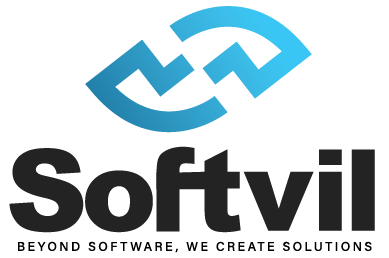In the current dynamic and technology-driven business environment, organizations are increasingly embracing outsourcing as a strategic approach to fulfill their software development requirements. Outsourcing software development involves partnering with a specialized software outsourcing company, such as Softvilmedia, to leverage the expertise of remote developers and build high-performing software development teams. Outsourcing software development refers to the practice of entrusting the development of software applications to an external expert software outsourcing company. It offers numerous benefits, making it a popular choice for businesses across various industries.
This article delves into the advantages of outsourcing software development, shedding light on its importance in the contemporary business landscape. We will explore how partnering with a software outsourcing company like Softvilmedia allows organizations to access a vast talent pool of remote developers. By doing so, businesses can tap into specialized skills, experience streamlined processes, and achieve cost-effective solutions. We will delve into the various advantages that outsourcing presents, including increased efficiency, scalability, and the ability to focus on core business functions. Join us as we uncover the compelling advantages that outsourcing software development brings to the table.
Cost-Effectiveness and Budget Optimization

Cost savings achieved through outsourcing
Outsourcing software development can lead to significant cost savings for businesses. By partnering with a software outsourcing company, organizations can avoid the expenses associated with hiring and maintaining an in-house development team. This includes costs such as salaries, benefits, office space, hardware, software licenses, and employee training. Software outsourcing companies often operate in regions with lower labor costs, allowing businesses to access highly skilled developers at a fraction of the cost compared to hiring developers locally. Additionally, outsourcing eliminates the need for long-term commitments, as companies can hire developers on a project basis, paying only for the services rendered.
Comparison of in-house development costs vs. outsourcing costs
When comparing in-house development costs to outsourcing costs, the advantages of outsourcing become evident. In-house development requires substantial upfront investments in infrastructure, technology, and human resources. It involves ongoing expenses for salaries, benefits, employee training, and software licenses. These costs can quickly add up, especially for smaller organizations or startups with limited budgets. On the other hand, outsourcing offers a more predictable and manageable cost structure. Software outsourcing companies provide transparent pricing models, allowing businesses to have a clear understanding of project costs from the outset. By outsourcing, businesses can allocate their budget more efficiently, focusing on core activities while leveraging the expertise of remote developers at a cost that suits their financial capacity.
Access to Expertise and Talent Pool

Benefits of partnering with a software outsourcing company
Partnering with a software outsourcing company offers numerous benefits in terms of accessing expertise and a diverse talent pool. These companies specialize in software development and have a deep understanding of the industry’s best practices, technologies, and trends. By collaborating with them, businesses can leverage their knowledge and experience to develop high-quality software solutions. Outsourcing companies often employ teams of highly skilled professionals who specialize in different areas of software development, such as front-end and back-end development, UX/UI design, quality assurance, and project management. This diverse range of expertise ensures that projects are handled by individuals with the necessary skills and knowledge, leading to better outcomes.
Leveraging specialized skills and knowledge of remote developers
One of the significant advantages of outsourcing is the ability to tap into the specialized skills and knowledge of remote developers. Software outsourcing companies have access to a global talent pool, allowing businesses to hire experts from different geographical locations. This expands the possibilities for finding professionals with niche skills or specific domain knowledge that may be scarce locally. Remote developers hired through outsourcing companies often have a track record of successfully completing similar projects. Their experience and exposure to different industries and client requirements enable them to bring valuable insights and innovative solutions to the table. Leveraging the specialized skills and knowledge of remote developers can enhance the quality of software development and lead to more robust and efficient solutions.
Expanding talent pool beyond local limitations
By outsourcing software development, businesses can break free from the limitations of their local talent pool. Instead of being restricted to the available developers in their immediate vicinity, they can access a vast global talent pool. This opens up opportunities to find highly skilled professionals who possess the exact skills and experience required for their specific project. Furthermore, outsourcing allows businesses to overcome challenges such as talent shortages or skill gaps that may exist in their local market. It provides access to developers who have experience working on diverse projects, using various technologies and frameworks. Expanding the talent pool beyond local limitations broadens the options available to businesses and increases the likelihood of finding the right expertise to meet their software development needs.
Improved Efficiency and Speed

Streamlined processes and project management by outsourcing companies
When businesses outsource software development, they benefit from the streamlined processes and efficient project management offered by outsourcing companies. These companies have established methodologies and frameworks in place to ensure smooth project execution. They have well-defined processes for requirements gathering, development, testing, and deployment, resulting in streamlined workflows. Outsourcing companies often follow agile development methodologies, such as Scrum or Kanban, which enable iterative development and frequent communication. This allows for better collaboration, transparency, and flexibility throughout the development process. Dedicated project managers and team leads oversee the project, ensuring effective communication, task assignment, and timely delivery of milestones.
Faster development cycles and time-to-market
Outsourcing software development can significantly reduce development cycles and time-to-market for businesses. With dedicated teams and experienced developers, outsourcing companies can expedite the development process. They have the necessary resources and expertise to handle complex projects efficiently, accelerating the overall development timeline. Moreover, outsourcing allows businesses to scale their development capacity quickly. If there is a need for additional resources or expertise, outsourcing companies can swiftly allocate the required developers to the project. This flexibility ensures that development cycles remain on track, even when faced with evolving project requirements or tight deadlines.
Maximizing productivity and resource utilization
Outsourcing software development helps businesses maximize productivity and resource utilization. By partnering with an outsourcing company, organizations can focus their in-house resources on core business functions and strategic initiatives. This allows key personnel to devote their time and energy to areas that directly impact business growth and customer satisfaction. Outsourcing enables businesses to offload the complex and time-consuming tasks associated with software development to dedicated teams. This ensures that both in-house and remote teams can work at their optimal capacity, leading to improved productivity and better resource allocation.
Focus on Core Business Functions

Advantages of outsourcing non-core tasks like software development
Access to specialized expertise: Outsourcing companies specialize in specific areas, such as software development, and have a deep understanding of industry best practices, emerging technologies, and the latest trends. By outsourcing non-core tasks, businesses can tap into this expertise and leverage the skills and knowledge of experienced professionals. This ensures that software development projects are executed with precision and efficiency.
Cost savings: Outsourcing non-core tasks can lead to significant cost savings for businesses. Instead of investing in recruiting, training, and maintaining an in-house software development team, businesses can outsource the task to a specialized provider. Outsourcing eliminates expenses related to salaries, benefits, infrastructure, and ongoing training. It allows businesses to access top talent at a fraction of the cost, making it a cost-effective solution for software development needs.
Allowing internal teams to concentrate on strategic initiatives
Strategic alignment: When non-core tasks are outsourced, internal teams can align their efforts with the strategic objectives of the business. They can concentrate on activities that are closely tied to the company’s core competencies, value proposition, and long-term goals. This strategic alignment ensures that internal resources are allocated to initiatives that have a direct impact on business success.
Increased innovation and agility: By freeing up internal teams from non-core tasks, businesses foster an environment of innovation and agility. Internal teams have more time and resources to explore new ideas, develop innovative products or services, and respond quickly to market changes. They can adapt to evolving customer demands, industry trends, and competitive pressures, staying ahead of the curve and driving continuous improvement.
Enhancing overall business efficiency and productivity
Streamlined operations: Outsourcing allows businesses to streamline their operations by leveraging the expertise of specialized service providers. Outsourcing companies have well-defined processes, established workflows, and efficient project management methodologies. They can deliver high-quality results within stipulated timelines, ensuring smooth operations and reducing bottlenecks.
Resource optimization: By outsourcing non-core tasks, businesses can optimize their resources effectively. Internal teams can focus on their core competencies and utilize their expertise in areas that generate the most value. This ensures that resources, including time, skills, and personnel, are allocated efficiently, leading to improved productivity and overall business performance.
Scalability and Flexibility

Accommodating changing business requirements through outsourcing
Resource scalability: One of the key benefits of outsourcing is the ability to scale development teams quickly and efficiently. As businesses experience growth or changes in their software development needs, outsourcing allows them to ramp up or downsize their teams as required. With access to a wide talent pool of remote developers, outsourcing companies can readily allocate additional resources to meet increased demand or adjust the team size to align with evolving business requirements.
Agile development approach: Outsourcing companies often employ agile development methodologies, which provide the flexibility to adapt to changing business needs. Agile practices promote iterative development, frequent feedback, and continuous improvement. This allows businesses to prioritize features, make adjustments, and respond to market dynamics effectively. The collaborative nature of agile development ensures that software applications can evolve alongside evolving business requirements.
Rapid team scaling and resource allocation
Quick team expansion: When businesses outsource software development, they gain access to a global talent pool. This means they can quickly scale up their development teams by adding remote developers with the required skills and expertise. Outsourcing companies have established recruitment processes and can efficiently onboard new team members, enabling businesses to meet tight project deadlines or accommodate sudden spikes in workload.
Resource optimization: Outsourcing allows businesses to optimize resource allocation. Instead of investing in hiring and training new employees or managing an in-house team with fixed resources, businesses can leverage the flexibility of outsourcing. They can allocate resources based on project requirements, ensuring that the right skills and expertise are available when needed. This resource optimization improves productivity, reduces costs, and enhances overall project efficiency.
Conclusion
Outsourcing software development offers numerous benefits and advantages for businesses. It provides cost-effectiveness and budget optimization, access to a diverse talent pool, improved efficiency and speed, the ability to focus on core business functions, and scalability and flexibility. By partnering with a software outsourcing company, businesses can tap into specialized skills, streamline processes, and enhance overall productivity. Outsourcing allows internal teams to concentrate on strategic initiatives, ultimately driving business growth and efficiency. As businesses navigate the rapidly evolving digital landscape, outsourcing software development should be considered as a strategic decision to leverage expertise, optimize resources, and stay competitive in the market. Embracing outsourcing can unlock opportunities for innovation and success in today’s dynamic business environment.

